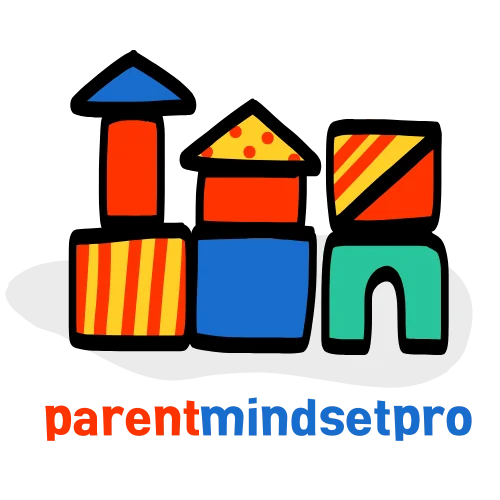In a world where kids are glued to screens, finding engaging activities that spark curiosity can feel like searching for a needle in a haystack. But fear not! STEM programs for kids are popping up everywhere, ready to transform your little ones into the next generation of innovators, inventors, and maybe even astronauts. Who wouldn’t want their child to build a robot that can fetch snacks?
Table of Contents
ToggleOverview of STEM Programs
STEM programs focus on fostering skills in science, technology, engineering, and mathematics among children. These initiatives provide hands-on experiences, allowing kids to engage in projects that fuel their creativity and problem-solving abilities.
Robotics clubs are common within STEM programs. Participants often build and program robots, promoting teamwork and collaboration. Engineering challenges help children learn about structural design and critical thinking. Science experiments spark curiosity, giving them a taste of real-world applications through experimentation.
Many local organizations offer these opportunities. Community centers frequently host STEM workshops that are accessible to families. Schools sometimes partner with STEM-focused nonprofits to introduce students to innovative activities. Libraries may also provide resources, including coding classes and science fairs.
In addition to skill development, STEM programs encourage exploration and curiosity. Children discover the excitement of conducting experiments and the joy of creating new inventions. Various age groups can benefit from different specialties within STEM, ensuring engagement at every level.
Overall, investing time in STEM programs can significantly impact a child’s future. Accessing programs near them opens doors to skills that are essential in today’s workforce. Parents often find satisfaction in watching their children innovate, create, and explore.
Benefits of STEM Education

STEM education presents numerous advantages for children, enriching their learning experiences in science, technology, engineering, and mathematics. These benefits contribute to their overall development and prepare them for future challenges.
Enhancing Problem-Solving Skills
STEM programs engage kids in real-world scenarios that require innovative solutions. Addressing challenges within projects deepens understanding and encourages experimentation. Children learn to analyze problems from different perspectives, leading to effective resolution strategies. Real-time feedback during hands-on activities strengthens their ability to adapt methods. Developing these foundational skills serves them well across various disciplines.
Promoting Critical Thinking
Critical thinking flourishes in STEM environments where children are encouraged to ask questions and seek answers. Engaging in discussions about project outcomes inspires deeper exploration. Analyzing data and troubleshooting gives kids the tools to evaluate options. When they participate in collaborative projects, they learn to justify their reasoning before their peers. Such experiences cultivate a mindset that embraces inquiry and nurtures intellectual growth.
Types of STEM Programs for Kids
STEM programs encompass a variety of activities designed to engage children’s interests in science, technology, engineering, and mathematics.
Robotics and Engineering
Robotics clubs offer hands-on experiences where kids design and build robots. Participants often engage in competitions, applying engineering principles to create functional machines. Local workshops may feature coding lessons alongside robot assembly, promoting teamwork and problem-solving skills. These activities immerse children in the engineering process while sparking their creativity. Clubs frequently emphasize real-world applications, allowing kids to see how their creations can solve everyday problems. Schools and community centers typically host these clubs, making them accessible for various age groups.
Science and Technology Workshops
Science and technology workshops focus on interactive experiments that stimulate curiosity. Children investigate topics from chemistry to physics through engaging activities. Activities might include chemistry experiments where kids create reactions, or technology sessions that explore coding and app development. Workshops foster a collaborative environment where kids can share ideas and build scientific knowledge together. Local libraries and educational organizations often provide these workshops, ensuring an inclusive space for learning. These workshops not only enhance scientific understanding but also promote critical thinking skills through hands-on exploration.
Math Clubs and Tutoring
Math clubs create an engaging environment for kids to tackle math challenges together. These clubs often use games and interactive activities to build problem-solving skills. Participants might explore topics like geometry, algebra, or statistics in a fun, informal setting. Tutoring sessions may provide personalized support, reinforcing classroom learning and fostering confidence in mathematical abilities. Local schools and community centers frequently host math clubs, promoting a love for math while helping students improve their skills. These initiatives help children develop a positive attitude towards mathematics, preparing them for academic success.
How to Find STEM Programs Near You
Finding STEM programs nearby requires exploration and research. Parents can rely on various local resources to identify engaging opportunities for their children.
Local Schools and Community Centers
Local schools often offer STEM clubs or extracurricular activities. Parents can inquire about science fairs, math competitions, or engineering workshops. Community centers typically host events and classes focused on STEM topics, providing hands-on experiences. Libraries frequently organize summer camps or after-school programs centered on science and technology. These venues create accessible options for kids to engage with STEM concepts while fostering collaboration and creativity.
Online Resources and Directories
Multiple online platforms help locate STEM programs in the area. Websites like STEM.org provide directories of programs tailored to different age groups and interests. Parents can explore local Facebook groups or community forums dedicated to education, often sharing information about upcoming STEM events. Additionally, national organizations like Code.org provide resources for finding coding and technology workshops. By utilizing these online resources, families gain access to a wealth of information about enriching STEM opportunities within their communities.
Factors to Consider When Choosing a Program
When selecting a STEM program, several critical factors need consideration. These elements ensure the program aligns well with the child’s interests and developmental stage.
Age Appropriateness
Age appropriateness plays a vital role in choosing a STEM program. Programs designed for specific age groups enhance engagement and comprehension. Younger children may benefit from programs that incorporate playful learning and basic concepts. Older kids often appreciate more challenging and advanced activities. Additionally, age-targeted programs foster social interaction among peers, encouraging teamwork and collaboration. Consideration of the program’s age range can help parents find the best fit for their child’s skill level and interests.
Program Length and Schedule
Program length and schedule are crucial for maintaining interest and commitment. Short sessions may work better for younger children, offering an introduction to concepts without overwhelming them. In contrast, longer programs may suit older kids, providing deeper exploration of topics. Weekly or biweekly schedules often balance well with school commitments and family time. Flexibility in timing can also accommodate extracurricular activities. Evaluating how long the program continues and when it meets helps ensure it fits well within the family’s routine.
Engaging in local STEM programs can unlock a world of creativity and innovation for children. These opportunities not only enhance essential skills in science and technology but also nurture a passion for learning. By exploring various options available in the community, parents can find programs that align with their child’s interests and developmental needs.
Encouraging kids to participate in STEM activities fosters a mindset of inquiry and collaboration. As they dive into hands-on projects, children develop critical thinking and problem-solving abilities that will serve them well in the future. Investing in these programs is an investment in their potential, paving the way for a brighter tomorrow filled with possibilities.
